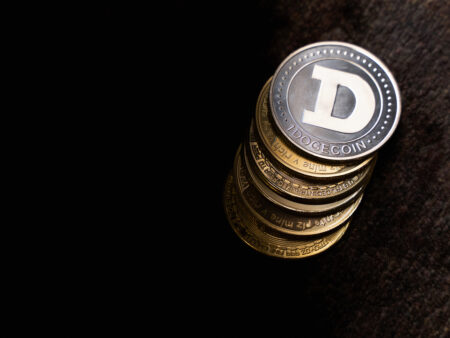In an intriguing twist in the crypto community, Billy Markus, who co-created Dogecoin and is also known by his pseudonym Shibetoshi Nakamoto, publicly declared his preference for Bitcoin over Dogecoin despite being the mastermind behind the memetic digital currency. The co-creator’s stance came as a surprise to many supporters and enthusiasts within the Dogecoin community.
Bitcoin, the pioneering cryptocurrency, is currently priced at a lofty $65,800, standing firmly as the largest and most valued digital asset in the market. In contrast, Dogecoin is trading at a modest $0.13. Despite Dogecoin’s lower price point and the affectionate community surrounding it, Markus’s leaning towards Bitcoin highlights the complex dynamics and considerations within the world of cryptocurrencies.
Dogecoin was initially created as a light-hearted joke, reflecting the whimsical nature of internet culture with a Shiba Inu dog meme as its mascot. Yet, it has morphed into a legitimate medium of exchange, lauded for its fast transaction times and nominal fees. These characteristics make Dogecoin particularly suitable for everyday transactions in a way that Bitcoin, with its higher fees and longer confirmation times, may not be.
Aside from its functionality, Dogecoin has an inflationary supply model that is praised by some experts for encouraging spending and circulation, with 5 billion new coins introduced to the supply annually. This contrasts with Bitcoin’s deflationary model, where the total supply is capped at 21 million coins, underscoring Bitcoin’s role as a store of value akin to digital gold.
The Dogecoin community is well-known for its effervescent spirit, often rallying around charitable causes and using the cryptocurrency for online tipping. This vibrant community engagement has been a cornerstone of Dogecoin’s staying power and appeal.
Dogecoin also enjoys a level of brand recognition and cultural appeal that few other cryptocurrencies can claim. Its meme origins endowed it with an approachable and fun demeanor that has struck a chord with a broad audience, some of whom might be intimidated by Bitcoin’s reputation for financial gravitas.
Despite all these appealing attributes of Dogecoin, Markus’s preference for Bitcoin may be indicative of the latter’s perceived stability, security features, and widespread acceptance as a form of digital asset. For many, Bitcoin represents the bedrock of cryptocurrency investment, a digital asset that has proved resilient throughout various market cycles.
As the debate between proponents of different cryptocurrencies continues, it’s evident that each digital currency offers unique qualities. For some, the choice between Dogecan and Bitcoin may come down to a matter of investment philosophy, transaction utility, or community culture. However, what remains clear is that the cryptocurrency ecosystem thrives on diversity, and the presence of both coins enriches the landscape for everybody involved.










